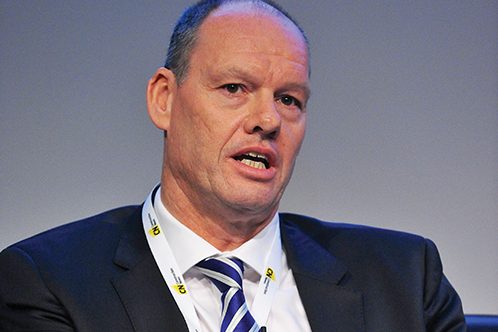Mace chief executive Mark Reynolds has hit out at clients imposing unfair contract conditions on smaller contractors, in the wake of widespread construction insolvencies.
Speaking to Construction News at the launch of the Construction Leadership Council’s bi-annual report, he said he hoped that stabilising inflation and the end of Covid disruption will encourage “common-sense behaviours, not unfair contract conditions” among clients.
He said: “Taking advantage of someone when they are trying to save their business and their family – it’s just not right.
“I have had supply chain come into my office, grown adults bawling their eyes out in front of me, because they care about their business and they’re worried. That is not a great place to be.”
He added that executives of smaller contractors are put off from seeking help for mental health issues caused by business pressures, due to fear clients will stop paying them.
He said: “The best thing we can do is get [economic] stability, work fairly, and not withhold money unfairly.”
His comments echoed a recent report from Mace’s consultancy arm, which warned against aggressive cuts to bid prices as contractors face dropping workloads.
Reynolds also said he was concerned there would soon not be enough approved inspectors capable of working on major projects, due to the high level of technical competence required for complex schemes.
He said that while Mace and businesses of a similar scale were reviewing whether or not the approved inspectors they worked with would be certified after 6 April, smaller organisations have less capacity to anticipate potential construction delays.
According to Reynolds, the CLC is in dialogue with the Department for Levelling Up, Housing and Communities and the Building Safety Regulator about how to collectively manage the problem and quickly resolve issues once they arise.
He added: “In three years’ time we don’t want to be talking about building safety, because it’s embedded in the industry. We’re not there yet.”

